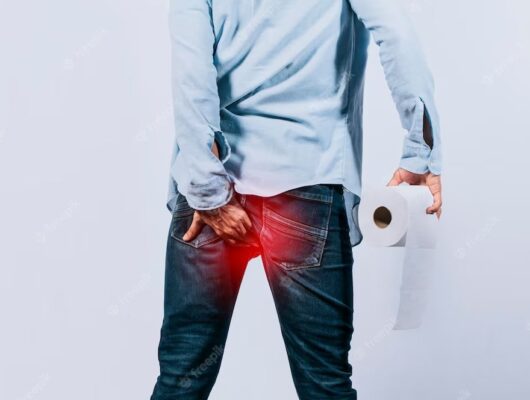Anal fissures are a common condition characterized by small tears in the lining of the anus. While they can be painful and discomforting, many cases of anal fissures heal on their own or with simple home remedies.
However, if left untreated, anal fissures can lead to various complications and associated conditions that require more extensive treatment. As explained by anal fissures treatment experts, here are some of the potential complications that can arise from untreated anal fissures.
1. Chronic Fissures
One of the primary risks of leaving an anal fissure untreated is the development of chronic fissures. While acute fissures typically heal within a few weeks, chronic fissures persist for longer periods, often becoming deeper and more severe. These chronic fissures can cause ongoing pain, bleeding, and discomfort, and may require more aggressive treatment options such as surgery.
2. Infection
Untreated anal fissures can become a breeding ground for bacteria, leading to infection. The constant exposure of the open wound to fecal matter increases the risk of bacterial contamination. Infections can cause symptoms such as increased pain, swelling, discharge, and fever. Antibiotics and other medical interventions may be necessary to treat the infection and prevent its spread.
3. Abscess Formation
If an infection progresses, it can result in the formation of an abscess. An abscess is a collection of pus that develops near the anal fissure or in the surrounding tissues. It causes intense pain, swelling, and redness, and may require drainage through a minor surgical procedure. Without timely treatment, abscesses can lead to further complications and the risk of a systemic infection.
4. Fistula Development
In some cases, an untreated anal fissure can lead to the development of a fistula. A fistula is an abnormal tunnel that forms between the anal canal and the surrounding skin. It occurs when an abscess does not heal properly and creates a passage for fluid or pus to drain. Fistulas can be painful and may cause recurrent infections. Surgical intervention is usually required to repair the fistula and restore normal drainage.
5. Fecal Incontinence
Chronic anal fissures that are left untreated can lead to a condition known as fecal incontinence. The persistent irritation and damage to the anal sphincter muscles can weaken their ability to control bowel movements effectively. As a result, individuals may experience involuntary leakage or the inability to control the release of gas or stool.
6. Anal Stenosis
Untreated anal fissures can lead to a condition called anal stenosis. This occurs when the healing process causes scar tissue to form and narrow the anal opening. Anal stenosis can result in pain, difficulty passing stools, and an increased risk of recurrent fissures. Treatment options for anal stenosis may include surgical interventions to remove scar tissue and improve the diameter of the anal canal.
7. Psychological Distress
Living with chronic anal fissures and their associated complications can take a toll on a person’s mental well-being. The constant pain, discomfort, and disruption to daily activities can lead to anxiety, depression, and reduced quality of life. Seeking appropriate treatment for anal fissures can help alleviate these psychological burdens and improve overall well-being.
While many cases of anal fissures resolve with conservative measures, leaving them untreated can lead to various life-threatening complications. It is essential to seek medical attention if you suspect an anal fissure to ensure timely treatment and prevent the progression of these complications. Remember, early intervention can save you from unnecessary pain and discomfort, and improve your long-term prognosis.
Choosing the Gut Care clinic, one of the best anal fissures treatment hospitals in Bangalore is ideal because we specialize in gastrointestinal health. Our expertise ensures accurate diagnosis, personalized treatment plans, and access to a range of effective interventions for prompt relief and prevention of complications.





